Jay Nordlinger is a senior resident fellow at the Renew Democracy Initiative and a contributor at The Next Move.
Editor’s Note: Berlin Freedom Week kicked off with a conference on November 10. Today and tomorrow, we will publish a journal by Jay Nordlinger, a senior resident fellow at the Renew Democracy Initiative.
Berliners, some of them, like to think of their city as a freedom city. Even the freedom city. Here is what some publicity for the Berlin Freedom Conference says:
The fall of the Berlin Wall on November 9, 1989, is a symbol of the triumph of democracy over authoritarian rule. Berlin, the city of freedom, is the stage for today’s freedom fighters.
That is a big claim. The Oslo Freedom Forum might like to have a word. In any case...
The Berlin Freedom Conference is part of Berlin Freedom Week—in fact, its opening event. This year marks the first ever Berlin Freedom Week. About 650 miles to the southwest, Paris has had its fashion week—the famed, venerable Paris Fashion Week—since 1973. How many years will Berlin Freedom Week be observed?
Even if it’s just one, the week performs a service.
This year, Berlin Freedom Week comprises 130 events at 80 locations. The opening, day-long conference takes place in an extraordinary building: the Gasometer.
See it, and read about it, here.
***
Kai Wegner opens the conference. He is the mayor, and governor, of Berlin. Like Mexico City, Berlin is both a city—the capital city—and a state. Herr Wegner was born in 1972, in West Berlin. He had recently turned 17 when the Wall fell.
***
Evelyn Zupke was born in 1962, so she was 27. She was born and raised in East Germany. Today, she is responsible for memorializing the victims of that communist state. That is, she plays an official part. Her title is “federal parliamentary commissioner for the victims of the SED dictatorship.”
“SED” are the German initials for the “Socialist Unity Party,” which was the party that ruled, exclusively, the eastern half of Germany for 40 years.
Frau Zupke knows exactly what democracy and dictatorship are. She won’t let anyone muddy up the differences. You could see the two systems on either side of the Wall, she says—and there was no doubt which was better.
When I was coming of age, I can tell you what I heard a lot, in my country, the United States. It went like this:
We in the West have political rights, such as freedom of speech and freedom of worship. In the East, they have social rights, or material rights: chiefly the rights to food, shelter, and health care.
East Germany was held out, by many Westerners, to be an excellent and humane state. In truth, it was both unfree and poor as hell. Same as all the other communist states.
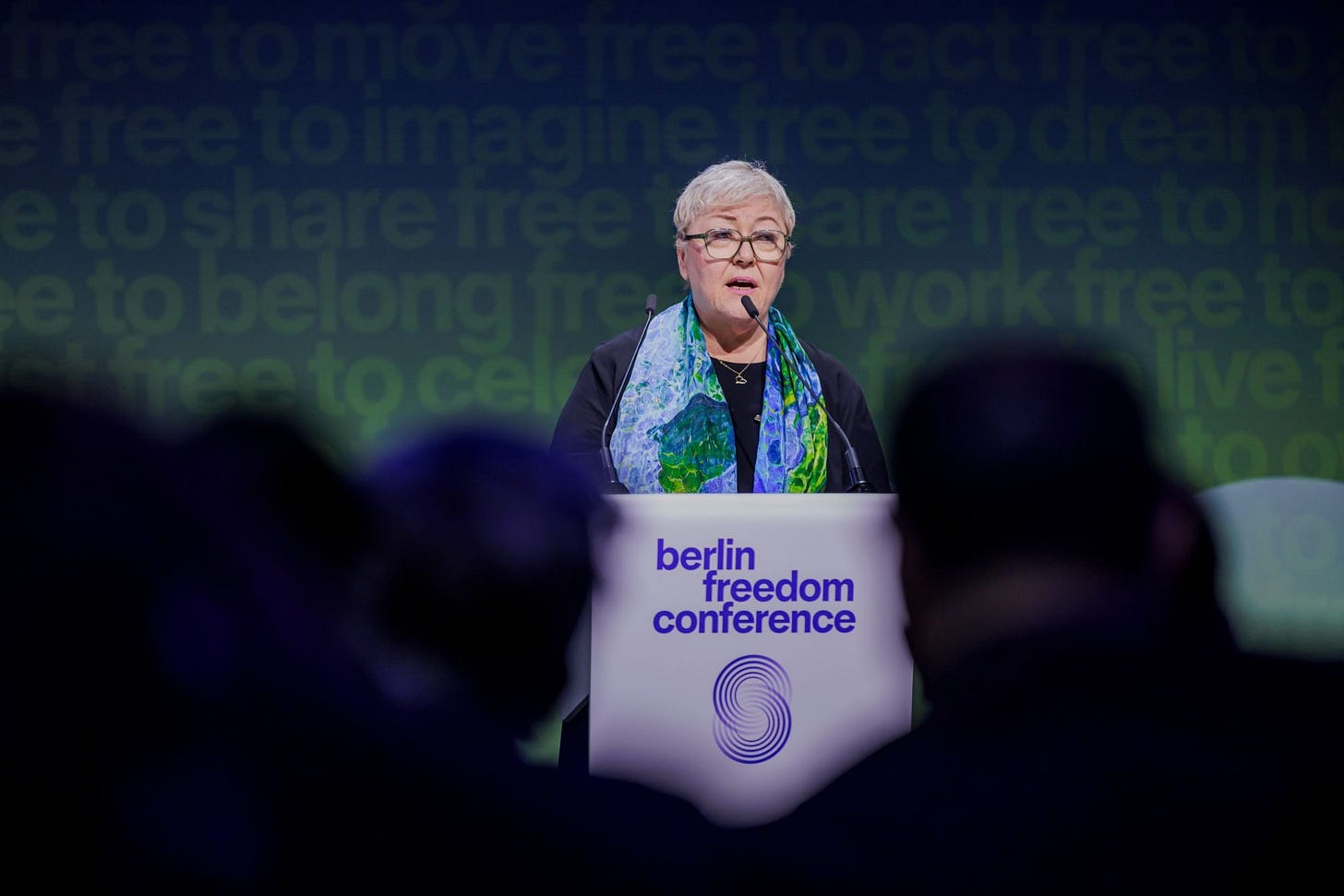
Did you ever see The Lives of Others, the 2006 movie written and directed by Florian Henckel von Donnersmarck? It is about East Germany, and the Stasi (the secret police), in particular. A stunning movie.
William F. Buckley Jr. was in his early 80s when he saw it. He pronounced it the best movie he had ever seen.
In 2008, I interviewed Donnersmarck at length, writing up that conversation in a piece called “Florian’s World.”
Here at the Berlin Freedom Conference, Evelyn Zupke details the repressive measures used by the East German state. And she cites a specific case: that of Jutta Fleck.
In 1982, Jutta Fleck tried to escape East Germany with her two daughters. They were caught, and the mother was separated from her children. She was imprisoned for two years. Then she was deported to West Germany.
For the next four years, she campaigned, ceaselessly, to be reunited with her daughters. Day after day, she stood at Checkpoint Charlie—the famous border crossing between the two Berlins—holding a sign that said, “Give me back my children.” Finally, in 1988, they were returned to her, from the East.
In 2006, there was a movie made about Jutta Fleck: The Woman from Checkpoint Charlie.
At the conference, in the Gasometer, Evelyn Zupke says that our democratic rights are “a given.” Maybe “too much of a given.” She sees what young people say, to pollsters, for example: that they have no political influence, that democracy is basically a sham, that there is no real difference between a free society and an authoritarian one.
It is “up to us” to tell them otherwise, says Zupke. She further says that democracy and freedom always need to be defended—not just with arguments but by arms.
I find her moving, this Evelyn Zupke. She speaks with the hard-won wisdom that is often found in people from communist states and other unfree societies.
***
It is moving to see Vladimir Kara-Murza, sitting in the front row. For about two and a half years—from April 11, 2022, to August 1, 2024—he was a political prisoner in his country, Russia. Many of us longed to see him again. And we have.
***
The three founders of the World Liberty Congress are present for a discussion in the Gasometer: Garry Kasparov, Masih Alinejad, and Leopoldo López. (For my notes on this year’s gathering of the WLC, go here and here.)
López puts something neatly: For millions—indeed, billions—around the world, the Berlin Wall is not “a metaphor of the past” but “a problem of the present.” In other words: they have not had their November 9, 1989.
***
Moving, as always, is Oleksandra Matviichuk. She is a human rights lawyer and the executive director of the Center for Civil Liberties, in Kyiv. The center shared the Nobel Peace Prize in 2022—with another organization, the Memorial society, from Russia, and an individual: Ales Bialiatski, a political prisoner in Belarus.
(For a piece of mine on the 2022 prize, go here. For a piece about Bialiatski, go here. For an interview I did with Oleksandra Matviichuk in October 2022, just before that year’s Nobel Peace Prize was announced, go here.)
Today, Oleksandra is speaking to us via video hook-up. “Let me tell you something important about the Russian war of aggression against Ukraine,” she says. “This is not just a war between two states. This is a war between two systems: authoritarianism and democracy.”
And “if Putin succeeds,” she says, this will “encourage other authoritarian leaders” to act as he has.
In “developed democracies,” says Matviichuk, people “inherited freedom from their grandparents.” And “they started to take human rights for granted.”
She continues,
They became consumers of democracy. They regarded freedom as the ability to make a choice between different cheeses in a supermarket. And that is why they are ready to exchange their freedom for populist promises...
Yes, “democracy is not perfect,” Matviichuk says. “Many people are disappointed in it because a large number of problems, including social inequality, remain unsolved.” But “authoritarian regimes don’t solve these problems either” (to put it mildly).
In a bracing statement—another one—Matviichuk says, “We were so confident that freedom and democracy was the final answer, we stopped promoting it.” But the values of freedom and democracy do have to be explained, and promoted, especially to the young, who may be seduced by communism and fascism.
Speaking as a Ukrainian, and an Eastern European, Matviichuk says, “The alternative to our imperfect democracy is the hell of a restored Soviet bloc.”
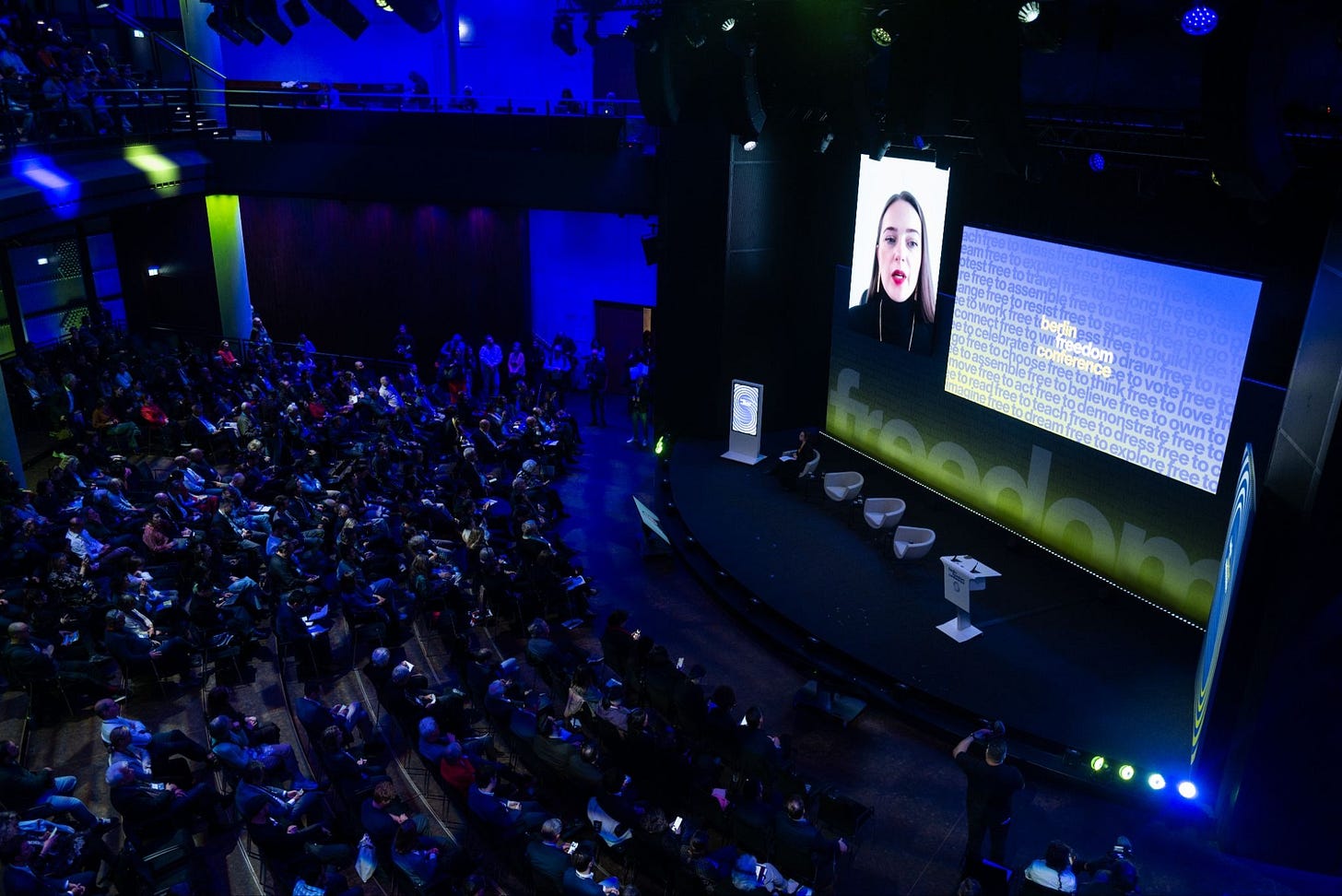
She concludes by paying tribute to Victoria Roshchyna, and she does so with tears in her eyes and a choked voice. Roshchyna was a Ukrainian journalist—incredibly determined and brave—who was tortured to death in Russian captivity in September 2024. She was 27.
Ukrainians such as Oleksandra Matviichuk want peace, heaven knows. But they know full well that there is nothing peaceful about Russian occupation. Balts, Poles, and others know just the same.
More from The Next Move:
Join the Renew Democracy Initiative in DC, Dec. 9-10
The Frontlines of Freedom Conference is about fostering a culture of freedom.
FOFCON Pod: When Garry Met Gorby
Garry Kasparov talks chess, America’s Putin apologists, and meeting the last Soviet leader.



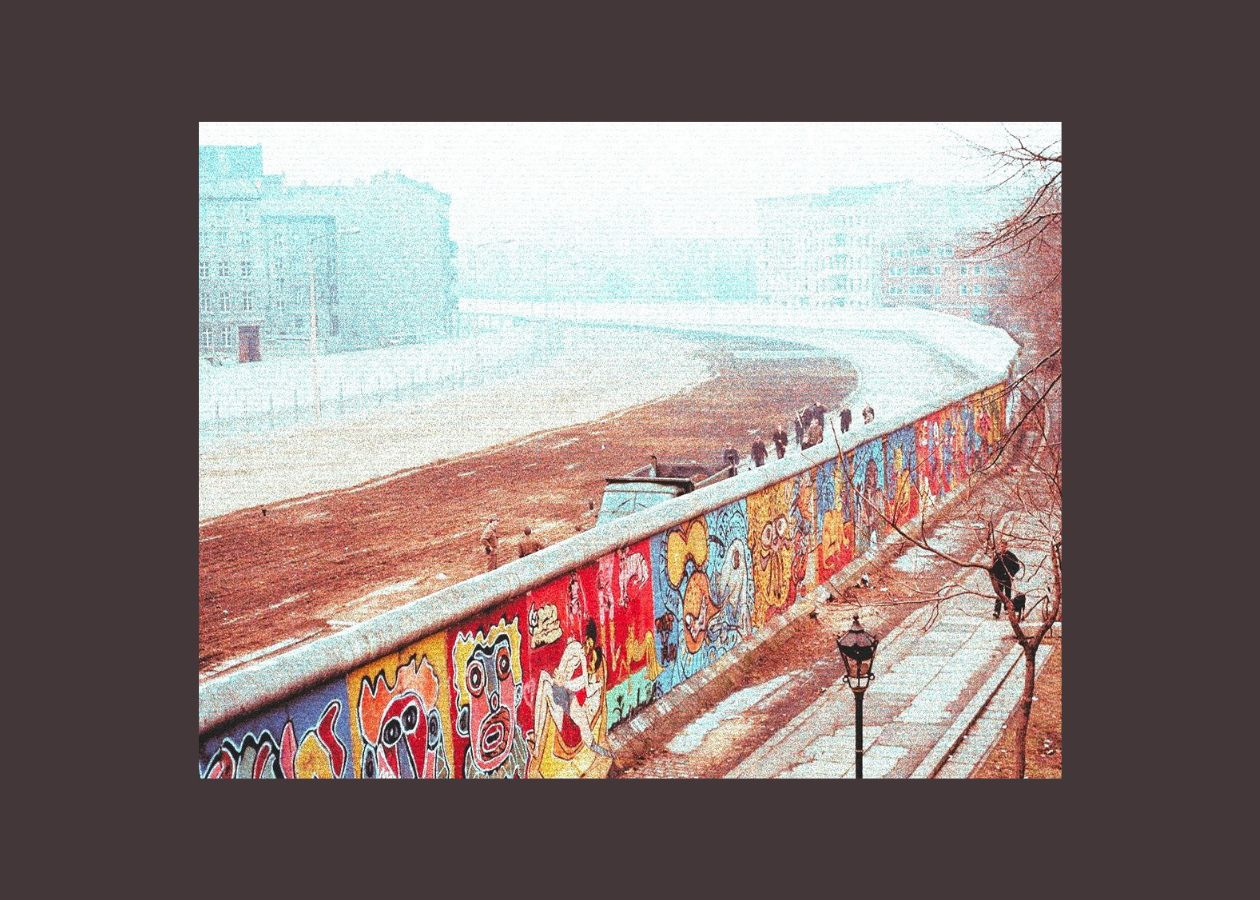
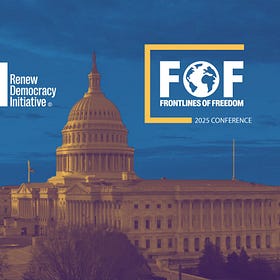
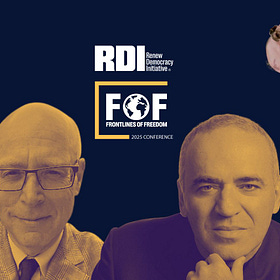

I am glad that Berlin Freedom Week will be every year
While you're in Berlin, you might want to check out the Checkpoint Charlie Museum, if you haven't already. It goes beyond just talking about the Wall and deals with freedom movements all over the world. https://www.mauermuseum.de/en/start/